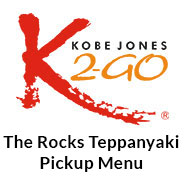Learning another language is a fantastic way to challenge your mind and take up a new hobby that you can work on easily in your spare time. Japanese is definitely not the simplest option when it comes to choosing a language to learn. But if you’ve ever thought about visiting Japan or you have some Japanese friends, it will definitely pay off!
Whether you’re learning Japanese through classes, a mobile app or through an online course, there are some Japanese words that are absolute must-knows for travel, study, work and most importantly… Eating!
The benefits of learning Japanese
As the age-old wisdom goes, in order to understand a culture, you need to understand the language. Japan (and the Japanese people) have a little bit of a strange reputation, with anime, manga, Harajuku and the themed cafes of Tokyo playing big roles in popular culture. Understanding Japanese language is a further step into really understanding the things that Japanese people enjoy and how the country functions.
If you’re planning on travelling in Japan, knowing at least a few key phrases will do wonders for you when it comes to getting around on public transport, ordering food, buying items and making sure you’re being polite and courteous to others at all times (something the Japanese people value very highly).
We’re not going to lie to you and say that learning Japanese is easy. But the process will definitely teach you that although it’s tricky, there’s value in taking the time to continuously improve yourself. Imagine how good you’ll feel the first time you realise you can speak a few sentences in Japanese fluently!
Obviously Japan is a massive economy, so learning the language can be incredibly helpful if you work in the technology or telecommunications sectors. The likelihood is that if you can manage to successfully manipulate Japanese into English (or vice versa) you’ll have a much better chance of scoring that dream job in Japan!
The best ways to learn Japanese
There are an absolute myriad of ways that you can start your Japanese language learning journey. You could enrol in an online course, download an app like Duolingo or even attend local classes.
Some say that if you listen to 10,000 hours of a language being spoken your brain will be so immersed that it will somehow just know how to speak it when the hours are complete. John Fotheringham from Language Mystery says that no matter how many high-quality teachers and resources you have access to, the best way to learn a language is through meaningful exposure and practice, instead of in a classroom or with your head in a book. He believes that new languages are acquired, not taught. Fortunately, the Internet provides a world of interesting reading and listening opportunities, as well as places for you to practice speaking and writing in Japanese. You just need to find the right one that works for your learning style!
A few notes about learning Kanji
Kanji is one of the elements of the Japanese language that people can take a long time to learn. After all, it’s pretty tricky! However, there are many benefits to making sure you learn as much kanji as you can as early on as possible, as it impacts on many other elements of the language and will make things easier for you down the track.
One tip for making learning kanji easier is to learn the ‘kanji radicals’. Whereas one traditional kanji character can have up to 18 strokes, kanji radicals only have up to three strokes. Think of kanji radicals as little pieces of one bigger puzzle, so you can use up to three kanji radicals to create one traditional kanji. Although there are up to 200 kanji radicals (depending on which list you look at), they’re much easier to learn than traditional kanji, so should save you some time in expanding your kanji vocabulary.
The 15 Japanese phrases you need to know
- ‘Ohayou gozaimasu’ (Good morning) and ‘konnichiwa’ (Hello/Good afternoon)
- ‘Arigatou’ (Thank you)
- ‘Watashi wa hitoride ryokou wo shite imasu’ (I am travelling alone) or ‘Watashi wa hitori dewa arimasen’ (I am not travelling alone)
- ‘Nihongo wo hanasimasen’ (I don’t speak any Japanese)
- ‘Maji de’ (for real, literally) or ‘gachi’ (totally, seriously, for real)
- ‘Kimoi’ (gross, ew)
- ‘Hara hetta’ (I’m hungry!)
- ‘Eigo ga hanasemasu ka?’ (Can you speak English?)
- ‘Gomennasai’ (I’m sorry)
- ‘Doko de intaanetto o tsukaemasu ka?’ (Where can I use the internet?)
- ‘Mou ichido onegai shimasu’ (Could you repeat that, please?)
- ‘Arerugii ga arimasu…’ (I’m allergic to…)
- ‘Tsuitara denwa shimasu’ or ‘meeru shimasu’ (I’ll call or email you when I arrive)
- ‘Kore wa ikura desu ka?’ (How much is this?)
- ‘Kurejitto kaado wa tsukemasu ka?’ (Can I use my credit card?)
Trying out your Japanese at Kobe Jones
Kone Jones is a highly innovative, stylish and modern chain of Japanese restaurants. Our passion and love for Japanese tradition and culture is something we wish to share with every single one of our customers. Feel free to browse and discover our delicious menu options.








